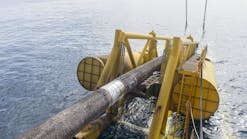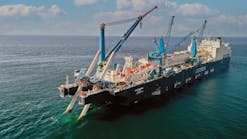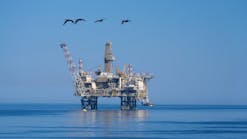There is little superficial difference between Russia and China when you look beyond the cities to the vast extents of rural lands that sweep across both countries. Peasants pry their lives from the soil, their very existence tied to their labor, to the hard forces that shape and define them. But there is a difference that drives deeper into these two countries whose only reason for comparison is their former incarnations, and that difference is the degree of hope for the future their people harbor.
In both the countryside and the cities, that hope provides both Russians and Chinese with the power and inspiration to carry on, to press through the routines of another day toward a slightly easier existence. But in the cities, the degree of hope held is more manifest. It shows itself in a multitude of embodiments.
In Russia, there is a pall over the land, a desperate sense of hopelessness, of fear and frailty in the face of decay, of inability to affect the future. There is an atmosphere charged with anticipation that something is about to happen, as if on a battlefield between opposing forces awaiting first light. And the people either cower before this impending unknown or throw caution to the wind and exploit it.
Boris Yeltsin personifies Russia. Just as the country has enormous petroleum resources that go untapped because of bureaucratic ineptitude and backroom machinations, he holds more power today than any of his predecessors, yet, he can't accomplish anything of significance. On the other side of the battlefield, the Duma is his nemesis, thwarting his every effort, making mockery of his every decree.
Therefore, because he presented himself as the hope of Russia, his failure is multiplied in the lives of the Russian people, who are presented with images of the good life but are unable to do more than look longingly at it in American movies, on television, and in the expensive boutiques of the GUM arcade.
The depression that has descended on Russia is painful, and that persistent pain is pushing Russians to seek solace in a return of the authoritarianism of their past, czarism or dictatorship, depending on their bent. Force rules, however, whether it be Yeltsin's Chechnya divertissement or the rampant gangsterism and hooliganism in the cities that echoes America's depression of the 1930s.
In China, it is as if a bright new day is dawning. There is a sense of excitement, of hope and enthusiasm for the future. The atmosphere is electric. It is apparent that things are happening that will transform everyone's life for the better. And everyone wants to be a part of this imminent transformation. Optimism is all-pervasive.
China is still poor, especially in the countryside, but the pain of hunger has been eliminated and positive hope is engendered in the peasants. In the cities, billboards proclaim China's new birth, its openness, its welcoming of the world to join in its journey to prominence if not world leadership in the 21st century. And it isn't a faade.
In Russia, the billboards disguise the crushing poverty and dilapidated institutions with proclamations of capitalism. In China, they frame construction sites whereon skyscrapers by the score are rising.
In Russia, investors are invited in in a flourish of word and symbol, but the legal, political, and social infrastructure upon which investment depends is lacking. In China, that infrastructure is in place, and investment is converting the country as no capitalist missionary could ever do.
Less than a decade ago, both Russia and China stood at the crossroads of change. Their institutional form of communism had failed and their leaders sought new directions. Both Russia's Mikhail Gorbachov and China's Deng Xiaoping advocated a gradual approach to democratic reform and conversion to a market-based economy, but only Deng and his approach survived the transformation period. Gorbachov was ousted and Russia began its yet-to-end stagnation under Yeltsin.
As a consequence, anarchy prevails in Russia in an atmosphere of political impasse, where laws are formulated but not put into effect, where parliamentary power plays and posturing prevail, but nothing gets done. But in China, the strong political leadership has avoided the errors and pitfalls that have devastated Russia and paved the way for free enterprise to flourish and prosper. State and private businesses and industries work side-by-side, and individual and corporate joint ventures are ubiquitous.
Both Russia and China possess enormous hydrocarbon reserves that are needed for internal development, for domestic consumption, and to earn hard currency through export. Russia has neither the technology nor the financial wherewithal to increase its current production or to explore and develop new reserves. Yet, despite the unparalleled rush to Russia of American and European companies hoping to take part in the rebuilding and development of the Russian petroleum industry, exploration and production contracts with foreign companies have yet to be executed. Or they may have been abrogated and given over to inept domestic organizations in need of employment.
China, on the other hand, sees the exploration and development of its petroleum reserves as an integral part of becoming an economic power by the end of the next decade. The country has executed hundreds of contracts with foreign operators over the past few years to explore for and produce oil and gas.
In the final analysis, China has taken a far more fruitful path and is now beginning to enjoy the enormous economic boom that has resulted. Of the two, it, rather than Russia, is the venue for investment today.
Dev GeorgeIn future issues, this page will reflect numerous viewpoints on the political, economic, cultural, technological, and environmental issues that may shape the future of our industry. Offshore Magazine invites you to share your thoughts on a subject of importance to the worldwide offshore petroleum industry. The only criteria for selection of your observations for publication are their global relevance. Let us hear from you. Send your manuscript to Beyond the Horizon, Offshore Magazine, Box 1941, Houston, TX 77251 USA. None will be returned.
Managing Editor - International
Copyright 1995 Offshore. All Rights Reserved.




